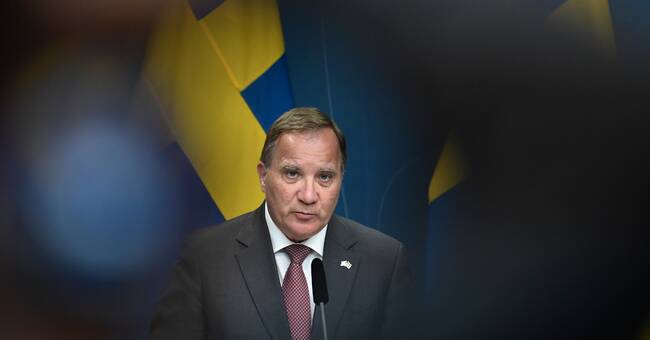The 2018 election result created a difficult political situation, where it took four months to form a new government.
For a long time, however, the minority government seemed to be able to survive the term of office, but the built-in contradictions in the government base have eventually become too great.
Now Löfven's government seems to be at the end of the road.
The fact that the government is withdrawing the proposal for free rent in new production would possibly make the Left Party back away from the demand for a declaration of no confidence, but at present there is no indication that the January parties are prepared for this.
Thus, the outcome of Monday's vote seems to be a given.
Stefan Löfven falls.
Difficult to form a new government
What happens next is unclear.
Stefan Löfven can either submit his resignation application, which means new presidential rounds to produce a new prime minister, Löfven himself or someone else.
Or Stefan Löfven can call an extra election to try to get a new government base.
No matter what, it can be very difficult to form a new government.
The Left Party, for example, would like to unite Löfven with, among others, the Sweden Democrats and the Moderates.
But the Left Party has no intention of releasing a moderate-led government.
With today's distribution of seats, there is thus no support in the Riksdag for Ulf Kristersson to become Prime Minister.
However, the margin for electing a new Prime Minister is very small.
Given that there are several savages in the Riksdag and that individual members may be absent or vote wrong, coincidences could lead Kristersson to the post of Prime Minister.
How long-lasting such a government will be, however, is another matter.
It is likely that Löfven will return
It is most likely then that Stefan Löfven will return as Prime Minister.
But here, too, the even political situation in the Riksdag can create problems for him.
The Liberals are not going to let Löfven out once again.
The question is also how Löfven will be able to put together a new government base in view of the great contradictions that exist between, above all, the Left Party and the Center Party.
Both of these parties must release him.
Sure, Löfven could in theory come back without the proposal for free rent in new production, but the Center Party seems to have a hard time accepting that.
No matter what, it looks like it could be a protracted presidential process before a new prime minister can be in place.
Forming a new government can thus be very difficult, even for Löfven.
The alternative: An extra choice
The alternative for Löfven is then to announce an extra election.
However, he did not mention anything about this today.
An extra election would then be held in late summer or early autumn.
The question, however, is whether this would solve any political knots.
Opinion polls suggest that a by-election would not fundamentally change parliamentary conditions.
Extra elections are also not commonplace in Swedish politics.
The last time this happened was in 1958. One explanation is the fixed terms of office.
Even if there is a by-election later this summer or early this autumn, the next regular election will be held on September 11, 2022.
A new government will thus only have a short time before it is time for a new election campaign.
This is an important explanation for why both the Moderates and the Christian Democrats have been skeptical of this vote of no confidence.
Stefan Löfven will also be historic if he is defeated in the Riksdag on Monday.
Nine no-confidence votes have been held in the Riksdag, but at no time before has a minister or prime minister been deposed.
In that case, Stefan Löfven would be the first.

